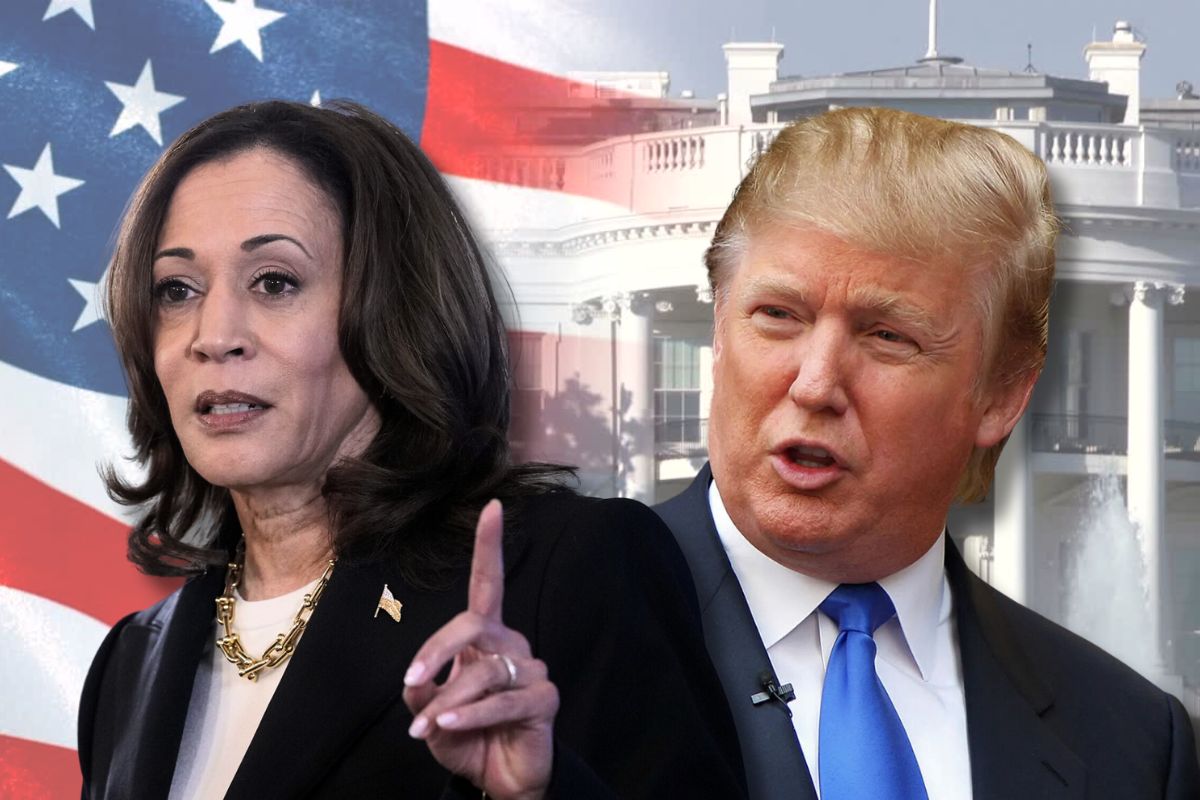Trump Sparks Controversy with Comments on Kamala Harris at NABJ Convention

Former President Donald Trump stirred controversy at the National Association of Black Journalists (NABJ) annual convention in Chicago with remarks about Kamala Harris, Vice President.
During a Q&A session, Trump responded to questions about Kamala Harris and accusations of her being a “DEI hire” (Diversity, Equity, and Inclusion) by stating, “I didn’t know she was Black“.
Former President Donald Trump stirred controversy during his appearance at the annual convention for the National Association of Black Journalists (NABJ) in Chicago.
Responding to questions about Vice President Kamala Harris, Trump falsely claimed that she “happened to turn Black” a few years ago, suggesting a sudden shift in her identity. He baselessly suggested that Kamala Harris had decided to “turn Black” only recently for political gain.
“I’ve known her a long time, indirectly,” Trump said. “And she was always of Indian heritage, and she was only promoting Indian heritage. I did not know she was Black until a number of years ago when she happened to turn Black, and now she wants to be known as Black.”
Kamala Harris campaign called Trump’s showing at the NABJ event an “absolute disaster.”
In response, Kamala Harris herself addressed the controversy, stating, “It was the same old show — the divisiveness and the disrespect. And let me just say the American people deserve better” during an event for the historically Black sorority Sigma Gamma Rho in Houston.
The comment quickly drew criticism from various quarters, with many accusing Trump of being dismissive and racially insensitive. Kamala Harris, who is of Jamaican and Indian descent, has been a prominent figure in American politics and a vocal advocate for racial equality.
Reactions from the Political Sphere
Vice President Kamala Harris responded to Trump’s remarks during a rally in Atlanta, calling out the former president for his divisive rhetoric. “Say it to my face,” Harris challenged, emphasizing her commitment to fighting for marginalized communities. Political analysts suggest that Trump’s comments are part of a broader strategy to undermine Harris as she campaigns for the 2024 presidential election. The former president has been known for his controversial statements, often targeting his political opponents with personal attacks.
Impact on the 2024 Presidential Race
As the 2024 presidential race heats up, both Trump and Harris are ramping up their campaigns. Kamala Harris has been focusing on key battleground states, addressing issues such as immigration and economic inequality. Meanwhile, Trump continues to hold rallies and release targeted ads, aiming to solidify his base and sway undecided voters. The exchange between Trump and Kamala Harris highlights the contentious nature of the upcoming election, with both candidates seeking to mobilize their supporters and address critical issues facing the nation. NPR interview with former President Donald Trump at the National Association of Black Journalists (NABJ) annual convention
Contentious Start and Key Points
- The interview began with a contentious start, where Trump refused to answer previous comments and explain why Black voters should trust him.
- Prominent evangelist Franklin Graham prayed over Trump during the interview, thanking God for saving his life.
- Rev. Lorenzo Sewell rallied up the RNC for Jesus and Trump.
- President Biden’s camp criticized Trump’s disparaging remarks about the current state of the country.
Election Lies and Vaccinations
- The conversation focused on Trump’s continued lies about the outcome of the 2020 election.
- Trump repeatedly attempted to assert misinformation about his election loss and the necessity of vaccinations.
- The interview was cut short when Trump hung up the phone
Trump’s remarks at the NABJ convention have added another layer of complexity to the already heated 2024 presidential race. As both candidates continue their campaigns, the focus remains on how they will address the pressing concerns of the American people and navigate the challenges of a deeply divided political landscape.

